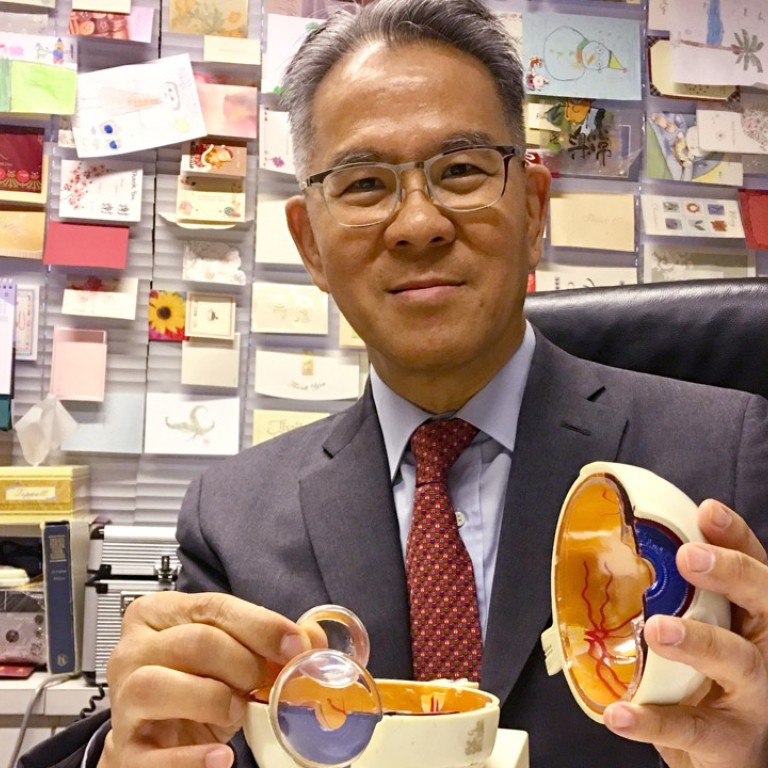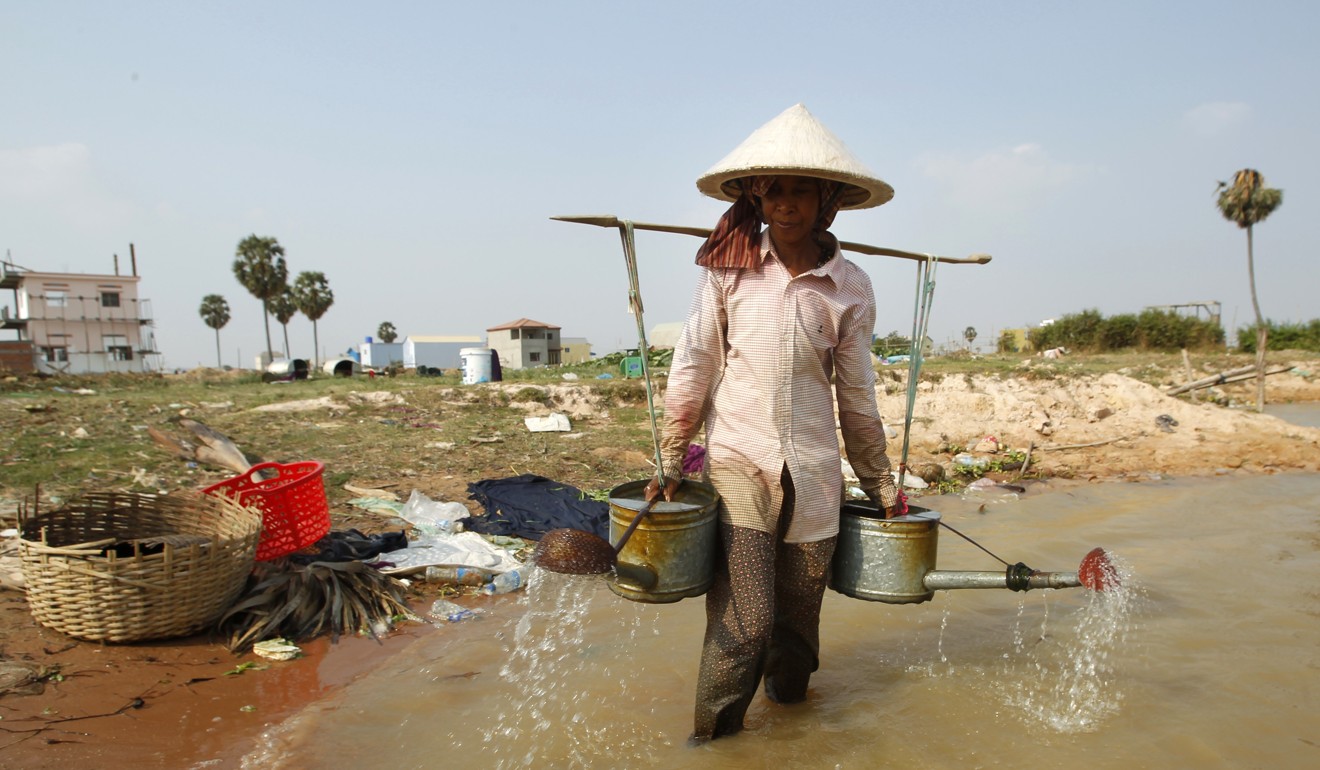
The Hong Kong and mainland Chinese doctors heading to Cambodia on a mission to give sight to the blind
Dr Chow Pak-chin and other medics are heading abroad to remove cataracts from thousands of the continent’s poorest people
“Helping patients to see again is a tremendously rewarding experience. This is one reason why ophthalmologists in Hong Kong are very passionate about charity work,” Dr Chow Pak-chin says.
A total of 41 Hong Kong doctors, along with medics from Guangxi province, have volunteered for the mission. Over two years, they will perform free eye surgery on thousands of Cambodians from poor villages, who would otherwise have no access to medical care or knowledge of how to prevent themselves from going blind.

Leung promised Chow he would do something. He later raised the issue with the foreign affairs department in Beijing, which promptly decided a charity scheme should be launched in Cambodia.
One of Southeast Asia’s poorest nations, Cambodia is a place where China’s influence is growing, with the recent signing of 19 agreements for infrastructure development worth billions of dollars between the two countries.
A ceremony to launch the cataract scheme was hosted by the Belt and Road Hong Kong Centre, the Asian Foundation for the Prevention of Blindness and the Cambodian health ministry in November last year. The centre helped to coordinate the mainland Chinese and Hong Kong doctors in visa and licence applications so that they could take part in the project overseas.

The scheme has started in Kampong Cham province, one of the poorest in the country, which is expected to have about 8,000 patients with cataracts.
Two advanced and expensive coaches with operation theatres and ultrasound, paid for by a HK$10 million (US$1.3 million) donation from the New Home Association, a charity, will travel to remote villages to reach the neediest.
“Then, if everything is OK, we’ll move on to other provinces until we eradicate all cataract blindness in Cambodia. Then other countries in need,” Chow says.
Cataracts are cloudy build-ups in the lenses of the eyes, common in elderly people. In Hong Kong, they affect up to 70 per cent of people aged 70 years or older. Their removal requires only simple surgery, so almost no one in the city goes blind because of them.
But Chow says he expects to find patients in Cambodia with much more serious cataracts, requiring a more complicated procedure, and who would be at risk of blindness if not treated.
“They may not even be aware they have cataracts, because they lack awareness and education,” he says. “For many people it is normal for the elderly to lose their sight because they are degenerating as they get old.”
For many people it is normal for the elderly to lose their sight because they are degenerating as they get old
According to Cambodia’s health department, more than 90 per cent of blindness in the country is avoidable, and mostly due to cataracts. But many either cannot afford the removal operation or do not know it is available.
Chow was not surprised by that, having been among the first to start a similar scheme in mainland China more than 20 years ago. He says the situation in Cambodia now is similar to the cases he saw in the poorest parts of China then.
“Meanwhile our work on the mainland is still going on. We’ve been doing this for more than 20 years,” he says. “Charity starts at home, naturally. I am touched that so many ophthalmologists are willing to offer help, which means they will have to put down their work, make the time, and fund their own trips.
“But making people see again is a rewarding feeling, and makes it all worth it.”

